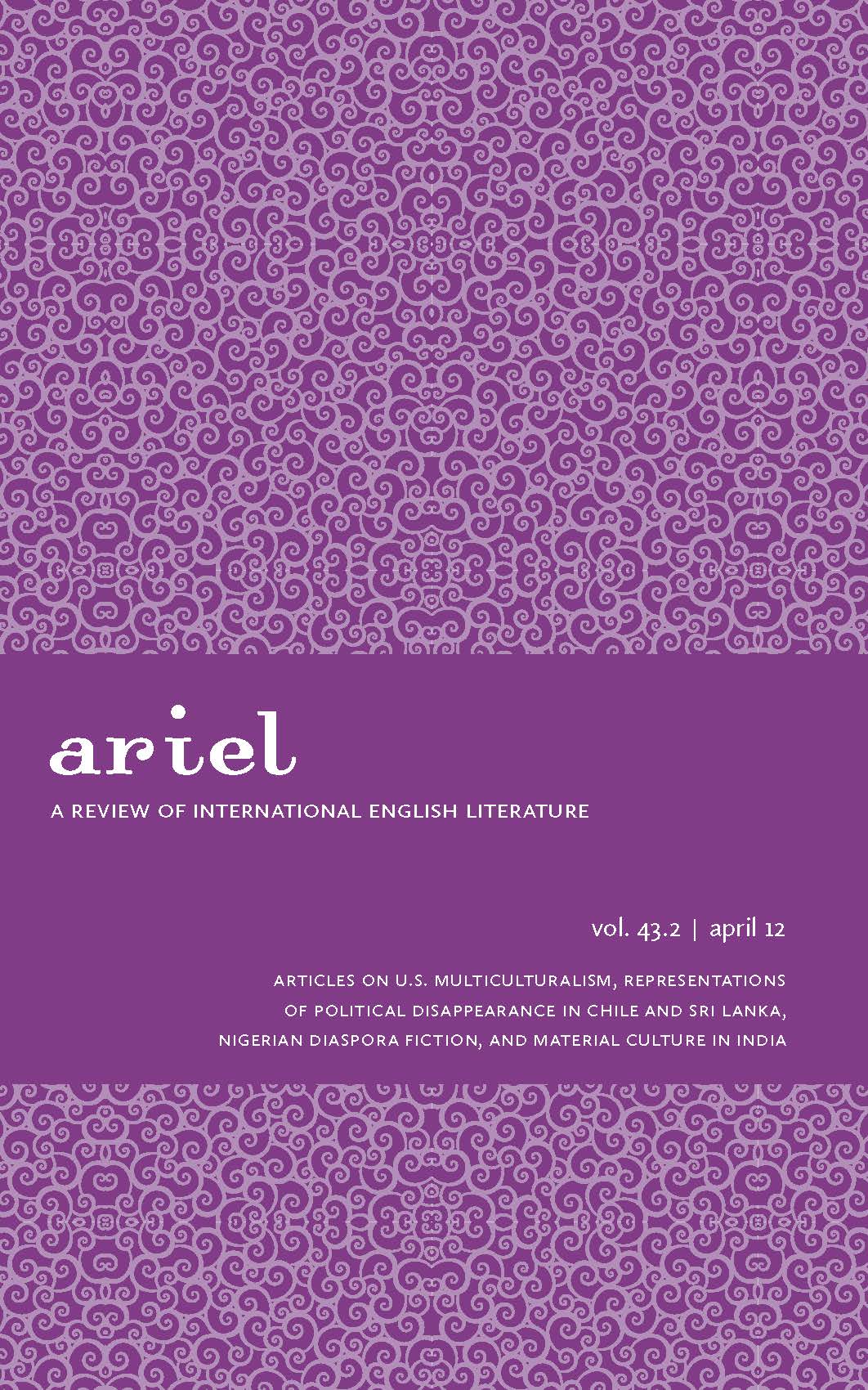Invisible Victims, Visible Absences: Imagining Disappearance for an International Audience
Keywords:
political disappearance, human rights, Ondaatje, Costa-Gavras, Sri Lanka, Chile, realism, aesthetics, readershipAbstract
The 1982 film Missing and Michael Ondaatje’s novel Anil’s Ghost are set in very different contexts—Chile and Sri Lanka, respectively—but both depict the aftermath of political disappearances. In different ways, these two works rely on the unique properties of realist narrative to fill the gaps and silences that disappearance produces, making its victims visible and laying the groundwork for real-world intervention. But in doing so, they inevitably reproduce the limitations of their authors’ or their readers’ imaginations. Written at a remove from the conflicts they depict, Missing and Anil’s Ghost are reflective of the distant audiences for which they are produced, and attending to their enduring silences and omissions ultimately suggests the limits of the internationalisms they instantiate.


